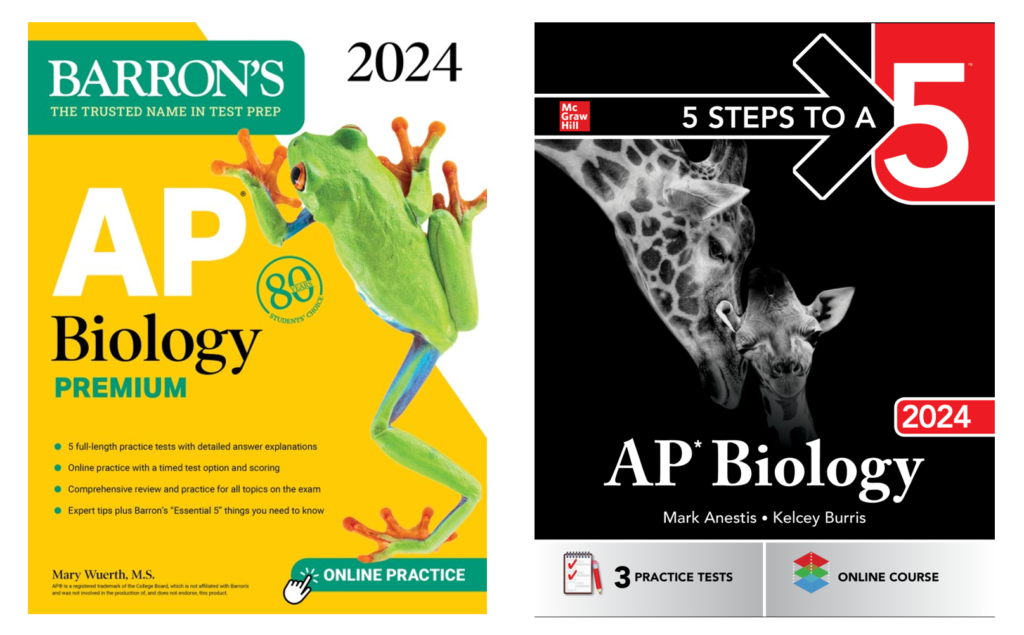
AP Biology is an Advanced Placement course offered by the College Board, designed to provide students with a college-level understanding of biology. The course covers a wide range of topics and emphasizes both theoretical knowledge and practical skills. Here’s an overview of the key topics typically covered in AP Biology:
### Key Topics
1. **Chemistry of Life**
– The structure and function of biological molecules (carbohydrates, lipids, proteins, nucleic acids)
– Properties of water and its importance in biological systems
– Enzymes and their role in biological reactions
2. **Cell Structure and Function**
– Cell theory and the structure of cells (prokaryotic and eukaryotic)
– Organelles and their functions (nucleus, mitochondria, chloroplasts, etc.)
– Membrane structure and transport mechanisms (diffusion, osmosis, active transport)
3. **Cellular Energetics**
– Cellular respiration (glycolysis, Krebs cycle, oxidative phosphorylation)
– Photosynthesis (light-dependent and light-independent reactions)
– Energy transfer and ATP production
4. **Cell Communication and Cell Cycle**
– Cell signaling and signal transduction pathways
– The stages of the cell cycle and regulation (interphase, mitosis, cytokinesis)
– Apoptosis and cell differentiation
5. **Heredity**
– Mendelian genetics (dominant and recessive traits, monohybrid and dihybrid crosses)
– Patterns of inheritance (incomplete dominance, codominance, sex-linked traits)
– Genetic linkage and mapping
6. **Gene Expression and Regulation**
– DNA structure and replication
– Transcription and translation (protein synthesis)
– Regulation of gene expression (operons, epigenetics)
7. **Natural Selection and Evolution**
– Principles of evolution and natural selection
– Evidence for evolution (fossils, comparative anatomy, molecular biology)
– Population genetics and speciation
8. **Ecology**
– Ecosystems and energy flow
– Population dynamics and interactions (predation, competition, symbiosis)
– Biodiversity and conservation
9. **Biological Diversity**
– Classification of life (taxonomy and phylogenetics)
– Characteristics of major groups of organisms (bacteria, archaea, protists, fungi, plants, animals)
– Evolutionary relationships among organisms
### Laboratory Requirements
– **Investigative Labs**:
– The AP Biology course includes a laboratory component where students perform experiments to develop skills in scientific inquiry, data analysis, and critical thinking.
– Labs are designed to explore key concepts in biology and provide hands-on experience with techniques and equipment.
### Exam Structure
– **Section I: Multiple-Choice Questions**
– 60 questions, 90 minutes
– Covers all major topics in AP Biology
– **Section II: Free-Response Questions**
– 6 questions, 90 minutes
– Includes 2 long-form questions and 4 short-form questions
– Questions require data analysis, experimental design, and application of biological principles
### Exam Preparation
1. **Understand the Course Content**:
– Familiarize yourself with the AP Biology course outline and content provided by the College Board.
– Identify the key topics and concepts you need to study.
2. **Practice Regularly**:
– Solve past AP Biology exam papers and practice questions to understand the format and types of questions asked.
– Practice numerical problems and data analysis.
3. **Conceptual Understanding**:
– Focus on understanding the underlying principles and mechanisms rather than memorizing facts.
– Use diagrams, molecular models, and real-life examples to grasp complex concepts.
4. **Use of Scientific Terms**:
– Learn and use correct scientific terminology.
– Practice writing clear and concise explanations.
5. **Review and Revision**:
– Regularly review your notes and textbook.
– Use revision guides and online resources to reinforce your understanding.
### Resources
– **Textbooks and Review Guides**:
– Use recommended textbooks that cover the AP Biology syllabus in detail.
– Review guides can provide concise summaries and practice questions.
– **Online Resources**:
– Websites like Khan Academy, College Board’s AP Central, and BioNinja offer tutorials, practice problems, and resources specific to AP Biology.
– Online forums and study groups can provide additional support and insights.
By thoroughly understanding the topics, practicing regularly, and utilizing available resources effectively, you can excel in your AP Biology exam and prepare yourself for college-level studies in biology, medicine, environmental science, and related fields.

